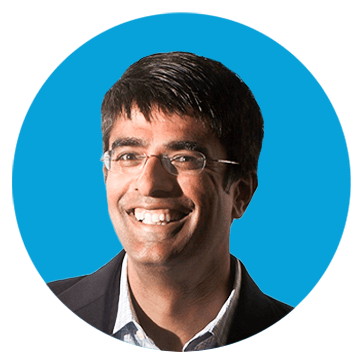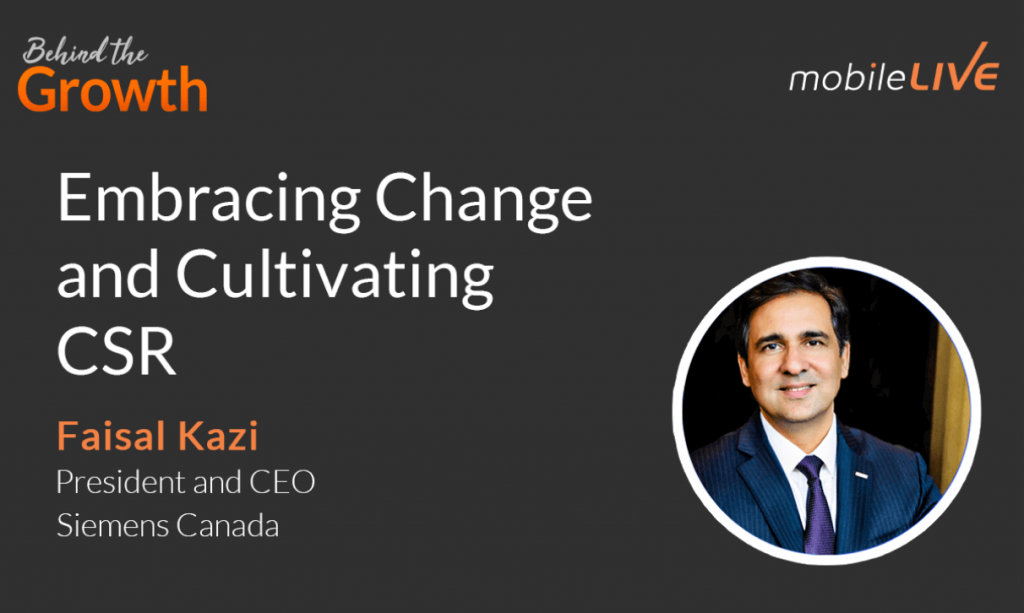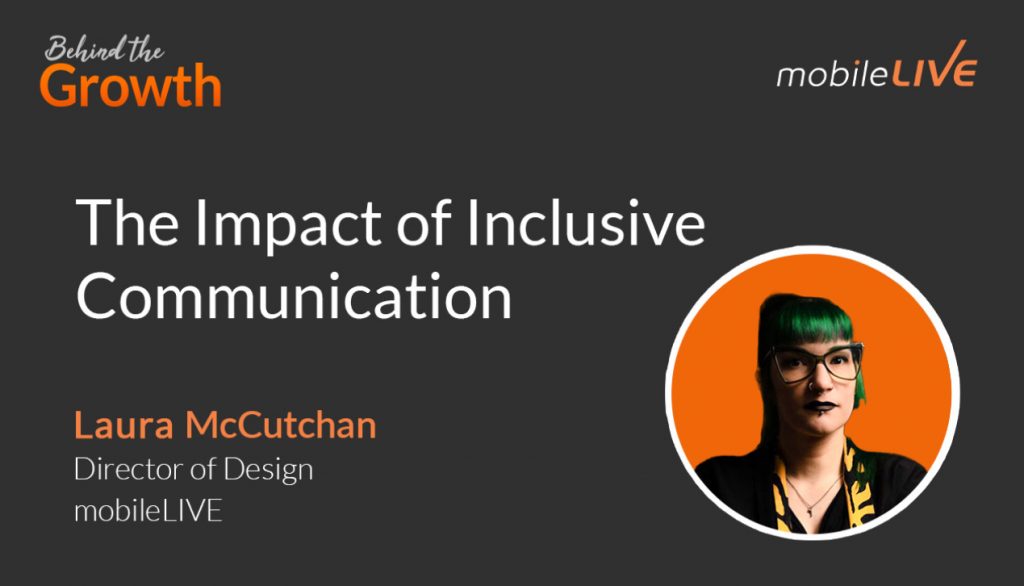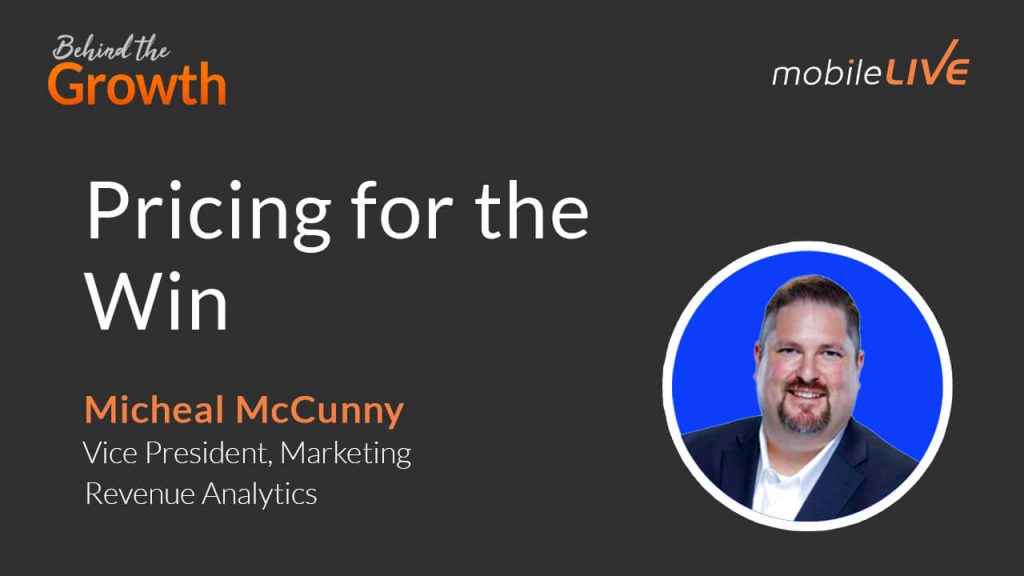Key Insights
Business First, Marketing Second. Although a marketer, Gaurav passionately follows the mantra of business first, marketing second—the roots of such a mindset date back to his childhood. As business owners themselves, Gaurav’s parents didn’t think of marketing. In contrast, they had a simple methodology: you need to spend X to get Y. Today, Gaurav knows how marketing is important to business success, but he still believes the starting point of fundamentals in every business is how to meet customers’ needs and drive revenue.
It All Started With the Culture and the People. Gaurav explains the role of a culture in which every contribution matters. He discusses the support of the leadership team and the board, from their openness to hearing and accepting ideas from the marketing team to investing in them. Gaurav also touches on the dynamics of his team. Although the team is small in size, they are all motivated to work on a shared goal and drive business growth. The team is agile, trained to move fast, and isn’t afraid to make mistakes, which, in his opinion, helped determine what works and have fun.
The Role of Marketing in Business Success. Finally, Gaurav elaborates on the role of marketing in business success. He explains that marketing and experience are horizontal, supporting the entire organization. He also discusses the importance of measuring the impact of marketing, focusing on outcomes rather than activities. Finally, he advises other CMOs to understand the business and work towards where they need to be in a year rather than just crunching numbers and producing tactics.
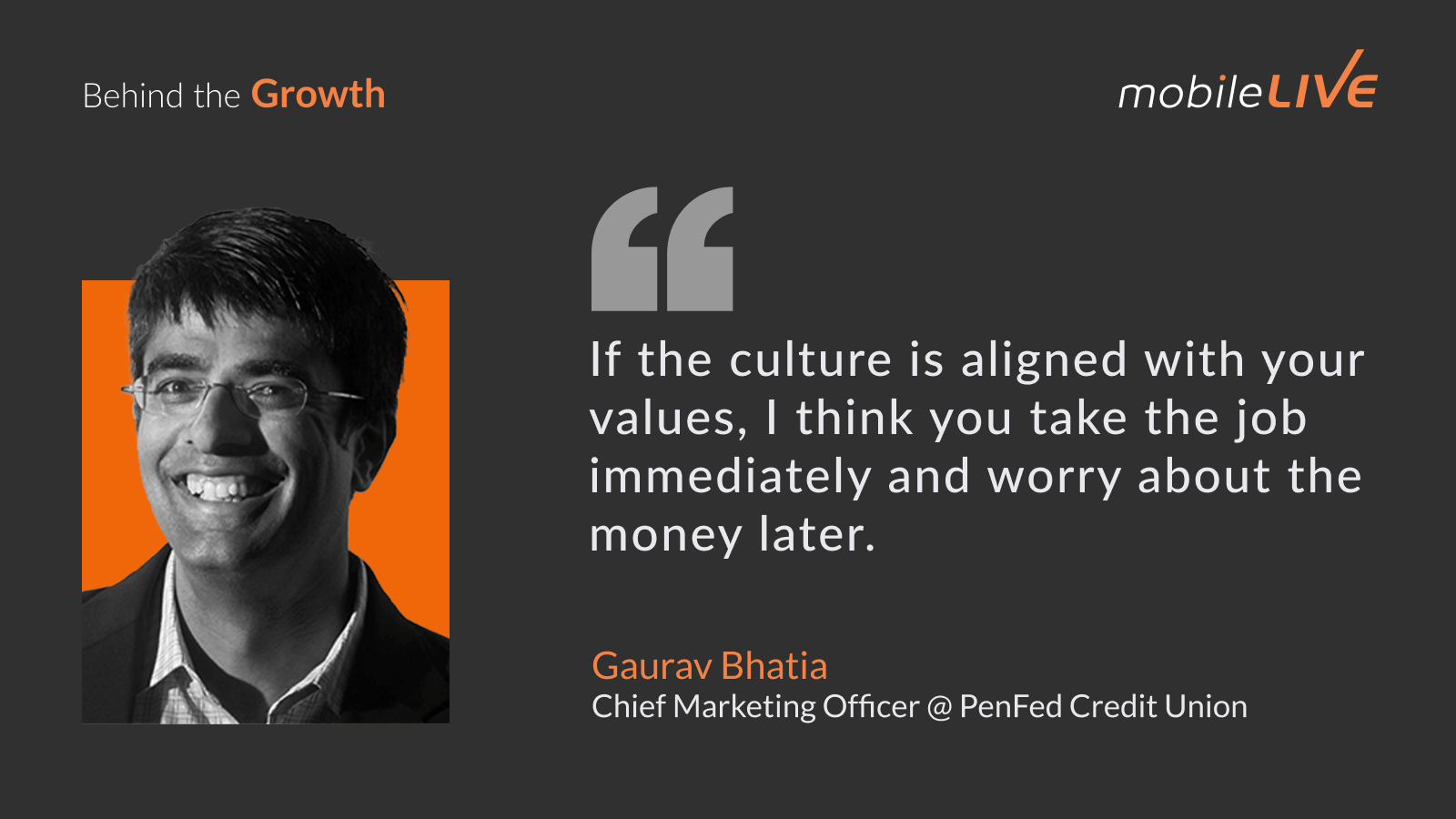
Episode Highlights
Agility Is Critical for Understanding and Meeting Customers’ Needs
A credit union’s success depends on its willingness to hear and understand customers’ needs. By understanding demand, an FI management team will make more informed decisions regarding the offer and pivot when necessary.
“You have to have a great product. But the second thing is, how do you get it to people? When I started, PenFed was close to about 1.7 million members and we will be close to 3 million this year. So I think that’s phenomenal growth.[…] Speed is important. We make a decision, and we move. We are not afraid to make mistakes. We won’t overthink it. We’ll go fast and do what’s required.”
The Transformation Journey at PenFed
In this segment, Gaurav discusses the transformation journey at PenFed. He emphasizes that every challenge eventually becomes a people issue. The key to overcoming these challenges, he suggests, is to sell the vision to the team and understand their pain points. He believes in being more of a patient helper than a doer, supporting his team to be successful.
“Things are always gonna take time. If you have a short-term glance, you’re probably not gonna win. You’re not gonna hit home runs. You need to think long-term, two or three years out. And I think that’s the reason I think most CMO is a little gun shy because they look at the headlines and say, oh, the average tenure of a CMO is very low, so you need to hit a home run on day one. You can’t; you don’t understand the business.”
The Importance of Seeking Feedback
Gaurav was open about the mistakes he made as an emerging marketer. He thought only marketers knew marketing. However, the practice showed him how important asking for feedback is. We often mistake feedback for criticism. But, as Gaurav says, mastering the skill of listening helps you become better at what you do.
“Take feedback; it’s a gift. It’s not personal. And it’s always good to listen. God’s given us two ears and one mouth for a reason. So listening is key.”
Communities Matter
What differentiate finance unions from the big players in the space is their involvement in the community. As Gaurav says, their goal is not to create marketing campaigns to attract new members but to give back to the community they operate in. The only way to do it effectively is by initiating and encouraging two-way communication between a credit union and community members. This approach allows community FIs to understand people’s needs.
“We are in the community. Our mates volunteer time. We have a foundation. We give back both in terms of money and also in terms of volunteer hours. It’s sometimes very difficult to solve for every community. But I think our teammates are so involved. They’re our brand ambassadors. They’re saying, ‘Hey, I’m part of this community, and this community is A, B, C.’ So they bring the ideas along with our members.”



